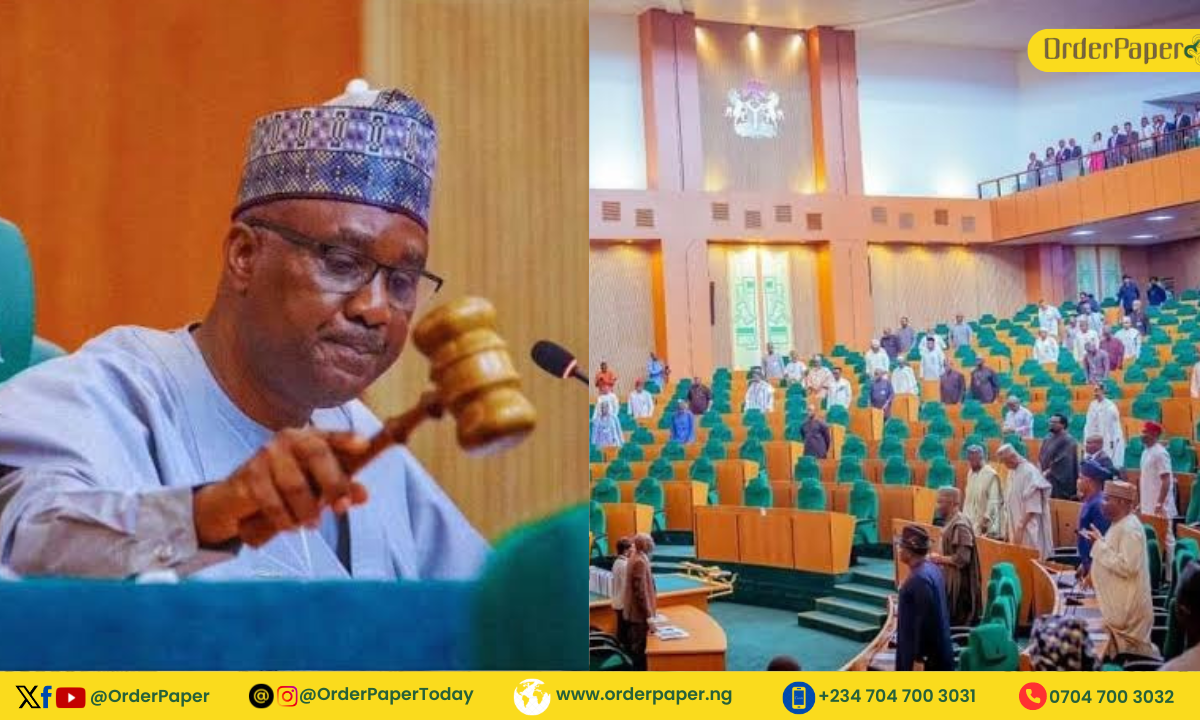Rep. Terseer Ugbor, says ASUU is bent on maintaining a model of financing tertiary education that has depleted the quality of education in the country over the years.

The Chairman of the House of Representatives Ad-hoc Committee On Student Loans and Access To Higher Education, Rep. Terseer Ugbor (APC, Benue), says the Academic Staff Union of Universities (ASUU) is the only academic body that opposes the Student Loan Act despite its potential benefits for citizens, and the quality of tertiary education.
The lawmaker said this while speaking at the OrderPaper OPEN (Online Parliamentary Engagement Nigeria) Space conversation organised on X (formerly Twitter) on Wednesday, January 24, 2024. The Open Space, to commemorate the International Day of Education which is celebrated 24th of January every year, was titled; “Breaking Barriers: Addressing Educational Inequality through the Student Loan Act.”
Recall that President Bola Tinubu signed the Access to Higher Education Act, 2023, into law in June, weeks after he was sworn in, in an attempt to fulfill one of his campaign promises. The Act, popularly known as the Students Loan Law, seeks to provide loans for indigent Nigerian students to pay fees in any Nigerian tertiary institution.
Speaking on this, Rep Ugbor disclosed that a summit, which had all the necessary academic bodies, was organised by the Committee to allow for adequate review of the Act earlier in the year.
According to him, ASUU was the only association at the summit that kicked against the implementation of the loan program despite its potential benefits.
The lawmaker said the academic union is bent on upholding the scholarship and bursary model of tertiary education that has depleted the quality of education over the years.
He said, “ASUU happened to be the only association that opposes the program. The Association of Vice Chancellors was present and supported it, the students were present and they supported it too, CONUA, a younger academic body supported the student loan program.”
Rep Ugbor further highlighted that “Nigeria first introduced the student loan in 1972 under Gowon’s administration and it worked successfully for a couple of years until the oil boom around 1977 and 1978.”
“Nigeria decided to move away from student loans and opt for free tuition, and after that, Nigeria moved to scholarships and bursary systems. It was eventually scrapped in 1991. Many of our parents benefited from the student loan program, and many of them ended up not paying for the student loan because the country stopped enforcing repayment.
“And it has remained that way till the present day. Regardless of the economic situation of the country, the population growth, and also regardless of the dwindling quality of education since the bursary system was introduced, ASUU is bent on maintaining it.”
However, Uwakwe Abugu, a Professor of Medical Law and Ethics at the University of Abuja, described the student loan program as “unworkable”, noting that it is likely to cause more tertiary students to drop out.
Professor Abugu pointed out that the introduction of the loan program will lead to the introduction of tuition fees which will significantly increase the cost of higher education.
He said, “We interact with students, and one will just go to class and notice that some students have dropped out. This is a case where student fees have not been introduced. What the students are struggling to pay now are auxiliary charges. By the time tuition now comes, that is when the act will become relevant. Also, this act is only talking about tuition. What is it saying about feeding, transportation, and accommodation? What is it saying about gadgets?”
Professor Abugu also noted that the harsh economic reality coupled with high unemployment will make the loan program more detrimental than helpful to students.
“Parents and students do not know the implications of this yet. By the time the act is implemented and tuition is introduced, that is when they will know.
“No one is saying the student loan program is bad, but the repayment method, considering the unemployment rate, inflation, and so many contradictions in the country will make the act fail. So if we are looking to promote the loan, we should also be looking at tackling corruption and other major issues in the country,” he added.
To listen to the conversation, click here.



